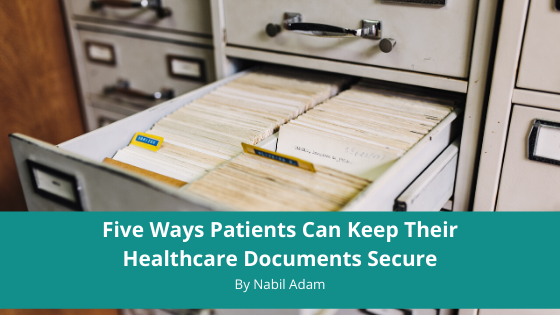Every year, nearly $260 million is spent in healthcare in the departments of fraud and waste. Personal Health Information (PHI) falls under that category, and there are things you can do to ensure that your PHI isn’t being leaked.
Don’t Share Your Insurance Information
There is an alarming trend of people who don’t have insurance asking to borrow the insurance cards of people with Medicare in an attempt to get healthcare supplies for themselves. Not only is this insurance fraud and punishable with hefty fines and jail time, but it is also an excellent opportunity for people who don’t need to have access to your health care-related information to gain access. Your insurance card is yours and yours alone.
If it Seems to Good to be True…
Verizon managing principal of healthcare, Connie Schweyen warns about the risk of falling for “free medical equipment” related scams. She explains how fraudulent “representatives” will contact Medicare recipients, offering them free medical supplies in exchange for their insurance information. That information is then used to bill Medicare for unneeded supplies, and tests are never administered.
Keep Your Own Records
By law, any healthcare provider you see has to maintain records concerning you. It’s also a good idea for you to keep your own healthcare records. This will ensure that if your information is ever “hacked” into, investigators can quickly detect who has gained access to your accurate information illegally.
Don’t Just Throw Away Bills
Receiving medical bills in the mail is never a fun process. However, many people pay those bills then throw them in the trash. It is always advised that you shred or otherwise destroy those papers before they go into the garbage. It should never be possible for someone to find a piece of paper and get your PHI from it.
Report Any Suspected Issues
Ultimately, it’s vital that you always trust your instinct. If you receive a phone call that doesn’t seem legitimate, end it. If you’re in a healthcare provider’s office and something seems “off,” report it. It’s your information, and you have rights.
Your PHI is a vital part of your personal security. While the healthcare providers that you use are responsible for protecting it, there are certain things you can do to increase your security.

